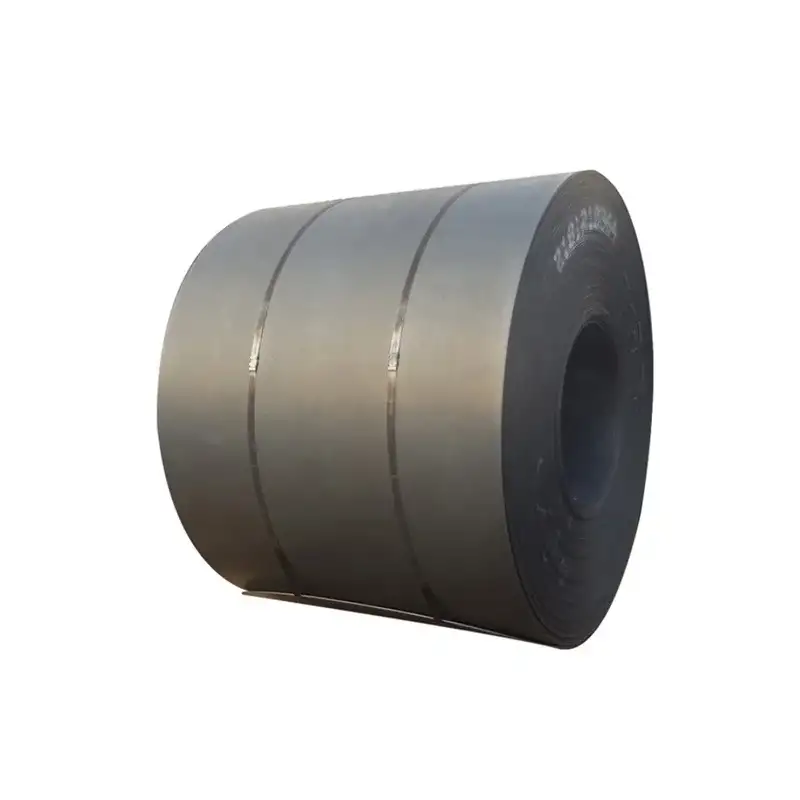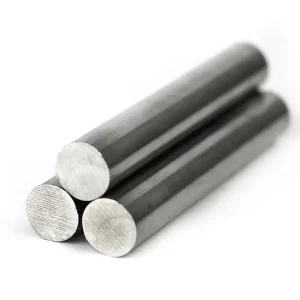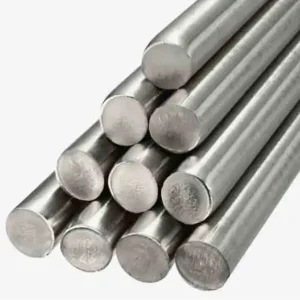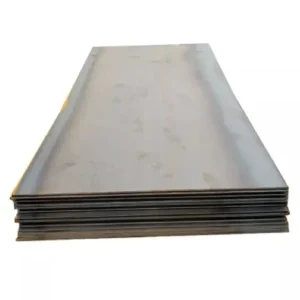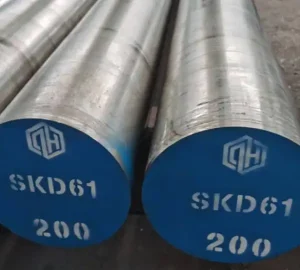SPHC is a Japanese Industrial Standard (JIS G3131) commercial-quality hot-rolled steel coil widely used for general forming and fabrication because it balances good formability, weldability, and low cost; for typical procurement in 2025 it remains one of the most price-sensitive commodity coils in global markets, with regional spot ranges roughly: United States ≈ $880–$975/short ton, Europe ≈ €580–€650/metric tonne, China ≈ CN¥3,300–3,900/metric tonne (representative spot ranges; see sources). Buyers choosing SPHC should prioritise clear specification of thickness, surface treatment (pickled or oiled), and mill tests; MWAlloys supplies SPHC hot-rolled coil from Chinese mills at factory-direct pricing, steady in-stock volume, and rapid dispatch for standard widths and thicknesses.
What SPHC means
SPHC stands for a commercial hot-rolled steel grade under JIS G3131 (hot-rolled mild steel plates, sheets, and strip). It is intended for general fabrication and drawing where high strength is not required but good ductility and cost efficiency matter. The grade sits in the commercial-quality band of steels used for mass production of parts, structural blanks, and general engineering.
Why choose SPHC
-
Low price per kilogram compared with higher-strength alloys.
-
Good ductility for bending, moderate drawing and cold forming.
-
Reliable weldability with common welding processes.
-
Best when surface finish and tight mechanical tolerances are not critical.
-
For tight formability demands or deep drawing, consider SPHE/SPHF family grades.
Chemical composition (typical limits)
The following table lists typical maximums and ranges found in JIS G3131 for SPHC and consistent mill analyses. Individual mill certificates (MTC / COA) should be checked for exact values.
| Element | Typical max / nominal (wt%) |
|---|---|
| Carbon (C) | ≤ 0.15 (commonly 0.08–0.15) |
| Manganese (Mn) | ≤ 0.60 (often 0.15–0.50) |
| Phosphorus (P) | ≤ 0.05 (max) |
| Sulfur (S) | ≤ 0.05 (max) |
| Silicon (Si) | usually minimal, trace to 0.03–0.10 depending on supplier |
Note: Some suppliers publish slightly different limits depending on the mill’s chemistry control and whether the coil is tailored for drawing or general use. Always confirm with the mill test certificate.
Material / mechanical properties (typical ranges)
Mechanical properties depend on thickness and production heat treatment. The table below provides representative values commonly used by fabricators and procurement teams.
| Property | Typical range / note |
|---|---|
| Tensile strength (Rm) | 280 – 410 MPa (varies with thickness; thinner coils near upper end). |
| Yield strength (Rp0.2) | 140 – 260 MPa (not always guaranteed for "commercial quality" unless specified). |
| Elongation (A80 or A50) | ≥ 20% commonly for thinner coils; improves formability. |
| Hardness | Typically low (HRB in commercial range). |
| Bendability / formability | Good for moderate bends and moderate drawing; not for deep drawing unless grade variant specified (SPHE). |
Buyer tip: If exact tensile/yield is important in your design, specify required values on the order and request the mill certificate (chemical + mechanical tests).
Typical specifications & dimensions
SPHC hot-rolled coil is offered in standard industrial coil sizes. The following table reflects common mill offerings.
| Parameter | Typical range |
|---|---|
| Thickness | 1.2 mm – 12 mm (common 1.2–6.0 mm for coil applications). |
| Width | 800 – 1,800 mm (common 1,000–1,525 mm) |
| Coil weight | 3–10 tonnes (standard coil: 2–8 t depending on mill) |
| Surface | Hot-rolled with mill scale; often pickled (PHC = pickled HRC) or oiled. SPHC typically denotes hot-rolled commercial quality (pickled options available). |
| Edge | Slit, full coil (depending on buyer's request) |
| Packaging | Waxed & strapped; export bundles with sea-worthy packing on request |
Specification note: If your application requires surface quality for painting or galvanizing, specify pickled and oiled (PO), or cold-rolled alternatives.
Manufacturing route and surface treatments
SPHC is produced by traditional hot rolling at a steel mill. Typical steps:
-
Slab reheating → hot rolling in finishing mill.
-
Coiling at temperature followed by cooling.
-
Optionally, pickling to remove mill scale (SPHC sometimes sold as "pickled hot rolled coil"). Pickling improves surface uniformity for painting and forming.
Processing notes: If downstream cold forming or drawing is planned, pickled and annealed coil will yield more consistent results. For welded structures, standard hot-rolled coil is suitable with common welding processes (MIG/MAG, SMAW).
Formability, welding and fabrication
-
Forming: SPHC performs well in bending and light drawing up to moderate depths. For deep drawing, prefer SPHE or other drawing-quality grades.
-
Welding: Good weldability with standard processes. Preheat rarely required for thin coils; follow mill guidance for thicker plates.
-
Machining: Not intended for precision machining; use for stamped, pressed, bent parts.
-
Coating / finishing: Can be painted, galvanized (after pickling), or roll-coated.
Applications and sectors
SPHC is common in:
-
Automotive panels and structural blanks for non-critical parts.
-
General fabrication: brackets, frames, small tanks.
-
Pipe & tube base material (welded).
-
Construction components where high strength is not mandatory.
-
Cold forming operations and light stamping.
How SPHC compares to other common grades
-
SPCC (cold-rolled commercial): Lower carbon, better surface finish and tighter thickness tolerances. Choose SPCC if surface finish and dimensional tolerances matter.
-
SS400 / Q235: These are structural steels with similar use cases; SS400 often used for plates/structural profiles, SPHC is coil/sheet oriented.
-
SPHE / SPHF: Designed for deep drawing and greater formability than SPHC.
Quality control, testing, and certificates buyers should require
Minimum documentation checklist:
-
Mill Test Certificate (MTC) showing chemical analysis and mechanical test results.
-
Surface treatment confirmation (picked, oiled, annealed).
-
Dimensional tolerances (thickness and width).
-
Non-destructive tests (if required for welded applications).
-
Traceability to heat/batch number.
Commercial notes: packaging, MOQ, lead time
-
Standard export packaging: steel bands, rust preventive oil, protective strip, wooden pallet or bundle.
-
MOQ: often 1–3 tonnes for bespoke slits; standard coil weights are common export units.
-
Lead time: depends on mill stock; MWAlloys maintains rotating stock for standard sizes and can dispatch quickly for stocked items; factory direct shipments typically reduce landed cost.
-
Payment and incoterms: typical China export practice is 30% T/T advance, balance before shipment or LC at sight; negotiate price basis (FOB, CFR, CIF).
2025 price snapshot and drivers
Global HRC prices moved through a volatile cycle in 2024–2025. Key drivers: scrap price, slab availability, Chinese domestic demand, trade flows, and macroeconomic demand from construction and automotive sectors. The following representative spot ranges for 2025 are taken from industry price trackers (ranges reflect spot and mill CSP levels in mid-2025):
-
United States (spot / mill base): ≈ $880 – $975 / short ton. Source: market commentary and CSP announcements.
-
Western Europe (ex-works): ≈ €580 – €650 / metric tonne (regional variation; Italy/Spain slightly lower).
-
China (domestic dealer / tonne): ≈ CN¥3,200 – 3,900 / metric tonne (monthly dealer indexes show movement in this band; convert carefully for USD).
Important: Steel prices change weekly; use these ranges for budgeting only and request fresh firm quotes for procurement. See next table for a compact comparison (units noted).
2025 price comparison table
| Region | Reported range (2025) | Unit | Primary source (sample) |
|---|---|---|---|
| United States | $880 – $975 | USD / short ton | IndustrialTube market report (May 2025). |
| Western Europe | €580 – €650 | EUR / metric tonne (ex-works) | Platts assessment reported via Eurometal/Platts monitoring (May 2025). |
| China (dealer) | CN¥3,200 – 3,900 | CNY / metric tonne | MEPS China dealer prices / SunSirs spot board (2024–2025). |
Caveat: Different publications use different units (short ton vs. metric tonne) and may report ex-works, CIF, or domestic dealer prices. Always confirm unit and incoterm on a quote.
FAQs
1: Is SPHC suitable for deep drawing?
Not ideal. SPHC provides good ductility for bending and light drawing; choose SPHE/SPHF or dedicated deep-drawing grades for extensive deep-draw operations.
2: Can SPHC be galvanized?
Yes. after pickling and proper surface preparation SPHC can be hot-dipped galvanized or coated. Specify surface treatment before plating.
3: Do SPHC coils come pickled by default?
Not always. SPHC denotes hot-rolled commercial steel; mills can supply either as-rolled (with scale) or pickled (referenced PHC/Pickled HRC). Confirm with supplier.
4: What documents should I request from the mill?
Mill Test Certificate (chemical + mechanical), heat/lot traceability, surface treatment certificate and packing list.
5: How does SPHC compare costwise with cold-rolled steel?
SPHC is cheaper per kg than cold-rolled commercial (SPCC) because cold rolling adds processing steps and tighter tolerances.
6: Are there standard tolerances for thickness?
Yes. JIS and mill catalogs define thickness tolerances; request the mill’s tolerance table or JIS tolerances for clarity.
7: How should I store SPHC coils to minimise rust?
Keep dry, use rust preventive oil, minimal floor contact, and ventilated storage. For long storage, consider indoor warehousing.
8: Is SPHC weldable to higher-strength steels?
Yes, but use compatible welding consumables and follow standard pre/post weld practice for thicknesses and constraint.
9: What are common surface defects to watch for?
Scale, laminations, edge cracks, and surface pitting. Specify inspection and reject criteria on the PO.
10: How to order for fast delivery?
Order standard thickness/width that the supplier keeps in stock; MWAlloys offers factory-direct stock options and expedited shipment for common sizes.
Why source SPHC from MWAlloys
MWAlloys operates as a China-based direct supplier with steady mill relationships. Key advantages:
-
Factory-direct pricing (100% factory price) for standard SPHC coils.
-
Rapid dispatch from regional stock for common coil sizes.
-
Export experience — packaging and export documentation matched to international buyers.
-
Technical support from our materials team on grade selection, tolerances, and MTC verification.

